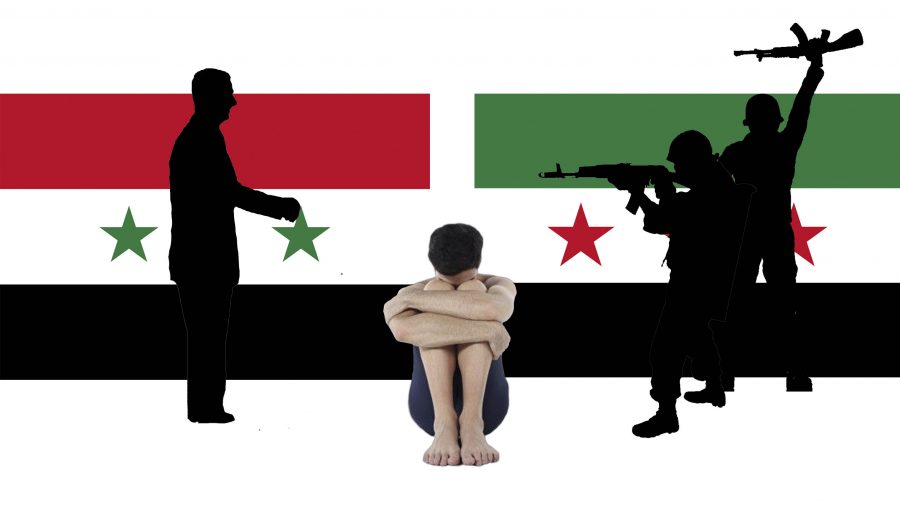Our responsibility in Aleppo
Something must be done in Aleppo, Syria. On October 1st, Russian and coalition warplanes bombed one of the city’s main hospitals. The Qatar Red Crescent Society has announced that the attack left two patients dead and eight others wounded. Half of the facility has also been destroyed. The attack serves as a culmination of what has been happening in the city since 2012. It also stands as a signal for the international community and the United Nations to take action immediately.
For years, Aleppo has been divided between the Syrian Armed Forces and rebel groups. According to the United Nations, more than 250,000 people are trapped in the city, which faces constant shortages of food, medicine and fuel. The president of Russia, Vladimir Putin, has carried out constant bombings to support the Syrian government and to deter Syrian rebel groups. The assaults have killed hundreds of civilians, left more than one thousand wounded, and deprived the entire population of safe drinking water. Bashar al-Assad, the Syrian President, has also unleashed barrel bombs and chlorine gas on Syria’s own citizens to demoralize opposition groups. Various cease-fires have been breached with impunity. The United States ambassador to the United Nations reported Putin’s actions in Syria as “barbaric” while the Secretary-General of the UN, Ban Ki-moon, described the attacks as “war crimes.” Individual and violent intervention in Aleppo should be completely condemned.
The United Nations Security Council has also failed to find an answer to this humanitarian crisis. The Responsibility to Protect, a political commitment endorsed by all member states of the United Nations which serves to prevent genocides, war crimes, and crimes against humanity, should have guided the members of the United Nations Security Council to a peaceful UN-endorsed intervention in Syria. However, attempts to enforce the resolutions drafted in the UN Security Council have failed as a result of constant blocks by permanent members of the Security Council due to ulterior political motivations. As described by Qatari politician Mohammed Al-Thani, “The humanitarian disaster now being inflicted on Aleppo illustrates the consequences of the United Nations’ failure.”
In Aleppo, civilians are being massacred with no remorse. It is the duty of the international community and the United Nations to mediate a response to this crisis. In 1999, after failed attempts by the UN to intervene against genocides committed during the Bosnian War, NATO took action to prevent a massacre in Kosovo. Six years later, the United Nations declared approval of NATO’s action through the Responsibility to Protect. The UN should not have tabled its responsibility to NATO. Instead, it should have mediated a peaceful intervention without delay. Just as the international community should not have deferred the responsibility to protect to NATO in 1999, it must learn from its mistakes and uphold the responsibility to protect in Aleppo.
Considering the negative effects of the American occupation of Iraq in 2003, some may argue that the international community will not be able to withstand another intervention in the Middle East. However, the 2003 war in Iraq was a war of choice; the situation in Syria is different. It is the moral responsibility of the international community and the United Nations to save innocent lives from massacre, and to salvage whatever dignity remains to those slaughtered by the status quo in Aleppo.
With respect to the Responsibility to Protect and Chapter VII of the United Nations Charter, the international community has the authority to take action. The United Nations Security Council must agree upon the adoption of a no-fly zone in Aleppo and the creation of safe havens in strategic points in Syria. In the event that a consensus is not reached by the Security Council, the UN General Assembly should urge the implementation of Resolution 377A, bypassing an impasse Security Council and allowing the UN General Assembly to take peaceful and collective action.
In Aleppo, attacks on hospitals and health clinics are common. Civilians, victims of their own government, are trapped in a deadlocked situation. It is the moral responsibility of the international community to take peaceful action. There is no more time to waste.
Sources: New York Times, Al Jazeera, Washington Post

As a senior writing for the POV section, this is Fernando's third and final year as part of The Talon. His passions revolve around development economics,...

In her second year on The Talon, Paula, now a senior, assumes her position as the Head Artist (she gets a fancy new assistant! perks!). Paula hopes that...











